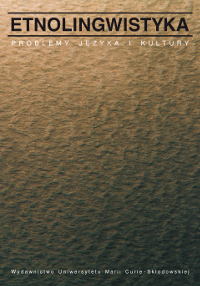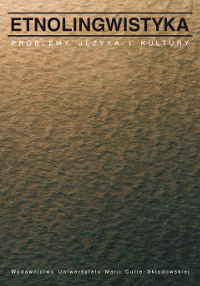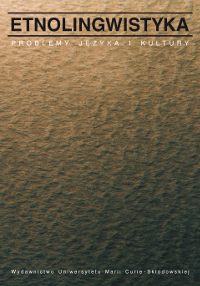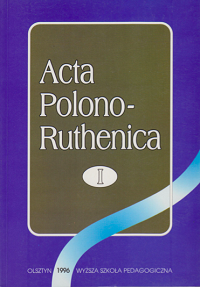
Opozycja swój / obcy a problem językowego obrazu świata
Starting from an analysis of the us (belonging to us) / them (alien) opposition, the article addresses the issue of future comparative research on Slavic linguistic worldviews. The first part presents four conditions of successful comparative study: (1) the establishment of tertium comparationis; (2) the establishment of an approximate level of generality; (3) the establishment of the limits of the research domain; (4) the collection of comparable data. While accepting that the plane on which worldviews can be compared may be, among others, oppositions of the type us / them, belonging to us / alien, male / female, left / right etc., the author also points out that descriptions based solely on oppositions are limited and that distinctive features are always selections from a larger set of positive features. The categories us / them or belonging to us / alien are analyzed on the basis of Polish data of three types: systemic (loan words), lexicographic (definitions of the expressions swój ‘one’s own’, swojak ‘one of us; a countryman’, swojski ‘native, home, familiar’, obcy ‘alien’) and questionnaires. It is confirmed that the us (belonging to us) / them (alien) opposition is scalar, that there exists a language-internal category of ‘alienness’ and that the category ‘one’s own, familiar’ is multidimensional or multiaspectual. An individual speaker connects in his or her consciousness the feature of being native/familiar with spatial and psycho-social closeness and his or her identity is more and more frequently described as a simultaneous participation in many communities of a local, national and cultural nature.
More...


